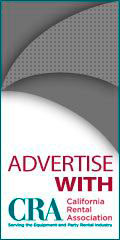
| Past Issues/Subscribe | Advertise |
California Air Resources Board Sees "Reasonable Compromise" in CAFE Standards
This should come as welcome news for automakers and industry groups that have worried about the possibility of complying with separate emission rules, one from the federal government and another from California, the only state granted the authority to set its own air quality regulations under the Clean Air Act. Increasing fleet fuel economy to 54.5 miles per gallon by 2025, as President Obama proposed last week, will reduce greenhouse gas emissions from light duty vehicles to 163 grams per mile, according to the government's calculations. "We've said all along that we wanted to see a 3 to 6 percent annual improvement in emissions for the fleet from 2016 levels, so the 163 level ends up being a little less than 5 percent, which we think is a reasonable compromise," Mr. Cackette said. He was referring to the current corporate standard, which covers 2012-16 model-year vehicles. At the federal level, the Environmental Protection Agency has authority to regulate greenhouse gas emissions, while the National Highway Traffic Safety Administration sets fuel economy standards. Yet given the close link between emissions and fuel economy, Mr. Cackette said that the state worked closely with these federal agencies in the proposals announced last week. In September, the board's proposal for greenhouse gas emissions will be followed by a rulemaking period during which public comments will be accepted. After this review and any modification made by board members, the proposals will be signed into state law. The federal agencies will go through a similar but longer rulemaking period, which is expected to conclude in the summer of 2012. Though much can happen over a year, Mr. Cackette does not expect any significant deviations from the federal fuel economy proposals announced last week, provided the final federal rules allow California to achieve its emissions reduction targets through 2025. "We would develop a provision for automakers allowing the federal standards to account for ours," he said. "We know that's what the car companies want." Information provided by Jim Witkin |

| calrental.org |

